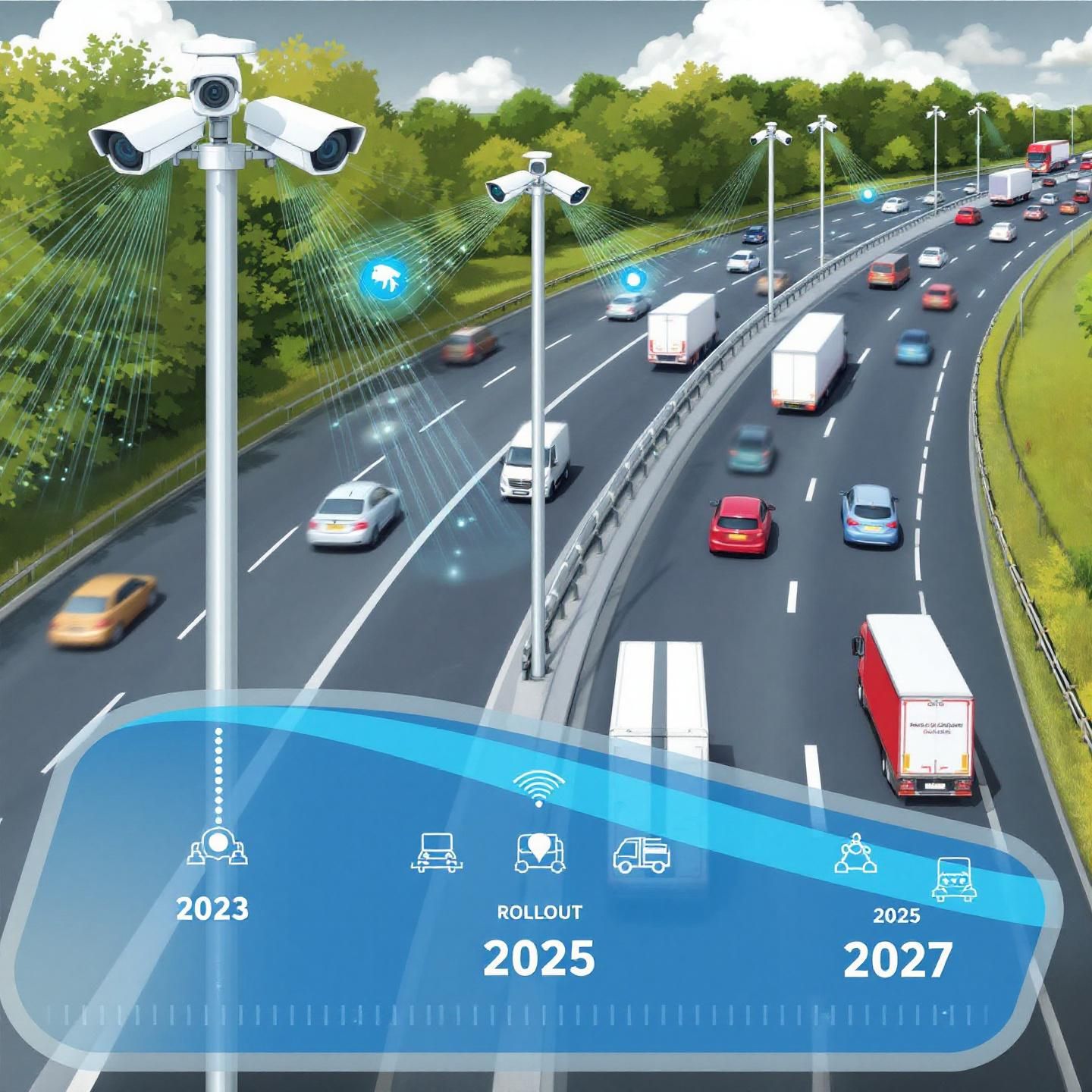
Smart Road Cameras in the UK: Capabilities, Impact, and Rollout Timeline
Introduction
The UK is entering a new era of road safety enforcement with the introduction of smart road cameras—advanced systems designed to detect a wide range of driving offences using artificial intelligence and high-resolution imaging. Unlike traditional speed cameras, these devices are capable of monitoring multiple behaviours simultaneously, offering a more comprehensive approach to traffic law enforcement.
Smart cameras are already being trialled in several regions, and a national rollout is expected to follow. This article explores what these cameras can do, why they matter, and when they are likely to appear across the country.
What Are Smart Road Cameras?
Smart road cameras are high-tech enforcement tools that combine artificial intelligence, machine learning, and multi-angle imaging to monitor driver behaviour in real time. Developed by companies such as Acusensus, these systems are typically mounted on overhead gantries or roadside poles, allowing them to capture clear views inside vehicles and across multiple lanes.
Unlike older models that focus solely on speed, smart cameras can detect a wide array of offences, including:
- Mobile phone use: Cameras can identify drivers holding or interacting with handheld devices while driving.
- Seatbelt violations: They can determine whether drivers and passengers are wearing seatbelts.
- Speeding: Traditional speed detection remains a core function.
- Vehicle documentation: Cameras can cross-reference number plates with DVLA databases to check for valid tax, MOT, and insurance.
- Passenger behaviour: Some systems can detect the number of occupants and whether children are properly restrained.
These cameras operate continuously and can process thousands of vehicles per day. Offences flagged by the system are reviewed by human operators before any penalties are issued, ensuring accuracy and fairness.
Why Are They Being Introduced?
The push for smart road cameras is driven by a need to reduce road casualties and improve compliance with traffic laws. According to Department for Transport statistics:
- Over 1,600 people were killed on UK roads in 2023.
- Speeding remains one of the leading causes of fatal accidents.
- Mobile phone use and seatbelt non-compliance are consistently linked to serious injuries and deaths.
In one recent trial, nearly 1,800 offences were recorded in just four weeks, including over 1,300 seatbelt violations and more than 400 instances of mobile phone use. These figures highlight the scale of risky behaviour that often goes undetected by traditional enforcement methods.
Smart cameras offer a more proactive and efficient way to identify and deter dangerous driving, particularly in high-risk areas such as motorways, school zones, and urban corridors.
Where Are They Being Trialled?
As of 2025, smart road cameras have been trialled by at least eleven police forces across England and Wales, including:
- Durham
- Greater Manchester
- Humberside
- Staffordshire
- West Mercia
- Wiltshire
- Northamptonshire
- Norfolk
- Thames Valley
- Sussex
- Warwickshire
In London, Transport for London (TfL) has installed AI-powered cameras on major routes such as the A23 in Lambeth, where nearly 300 offences were recorded within the first three days of operation.
Devon and Cornwall Police have also trialled mobile versions of the technology, mounted on vans and deployed at known accident hotspots.
When Will They Be Rolled Out Nationally?
The national rollout of smart road cameras is expected to accelerate throughout late 2025 and into 2026. While exact dates vary by region, the following timeline offers a general overview:
- 2023–2024: Pilot trials conducted by selected police forces and local authorities.
- 2025: Expansion into high-risk areas, including London, the South West, and parts of the Midlands.
- 2026: Wider deployment across England, Wales, and potentially Scotland, subject to devolved government approval.
Local councils and police forces will announce installation schedules and update signage to reflect enforcement zones. Public awareness campaigns are also expected to accompany the rollout, informing drivers of the new technology and its implications.
Public Response and Ethical Considerations
While many road safety advocates support the introduction of smart cameras, concerns have been raised about privacy, data protection, and the role of artificial intelligence in enforcement.
A recent survey found that:
- Over one-third of UK drivers want human oversight of AI-generated penalties.
- One in five believe the cameras could be misused or lead to unfair fines.
- A significant number support the technology if it demonstrably reduces accidents and saves lives.
To address these concerns, most systems include manual review processes, data encryption, and strict compliance with GDPR regulations. Transparency and accountability will be key to maintaining public trust as the technology becomes more widespread.
Smart road cameras represent a major shift in how traffic laws are enforced in the UK. By combining artificial intelligence with real-time monitoring, these systems offer a powerful tool for improving road safety and reducing preventable deaths. With trials already proving effective, and a national rollout on the horizon, drivers should expect to see more of these cameras in the coming months.
For campaigners, councils, and community groups, this technology presents both an opportunity and a challenge: to educate the public, advocate for responsible implementation, and ensure that enforcement remains fair, transparent, and focused on saving lives.









